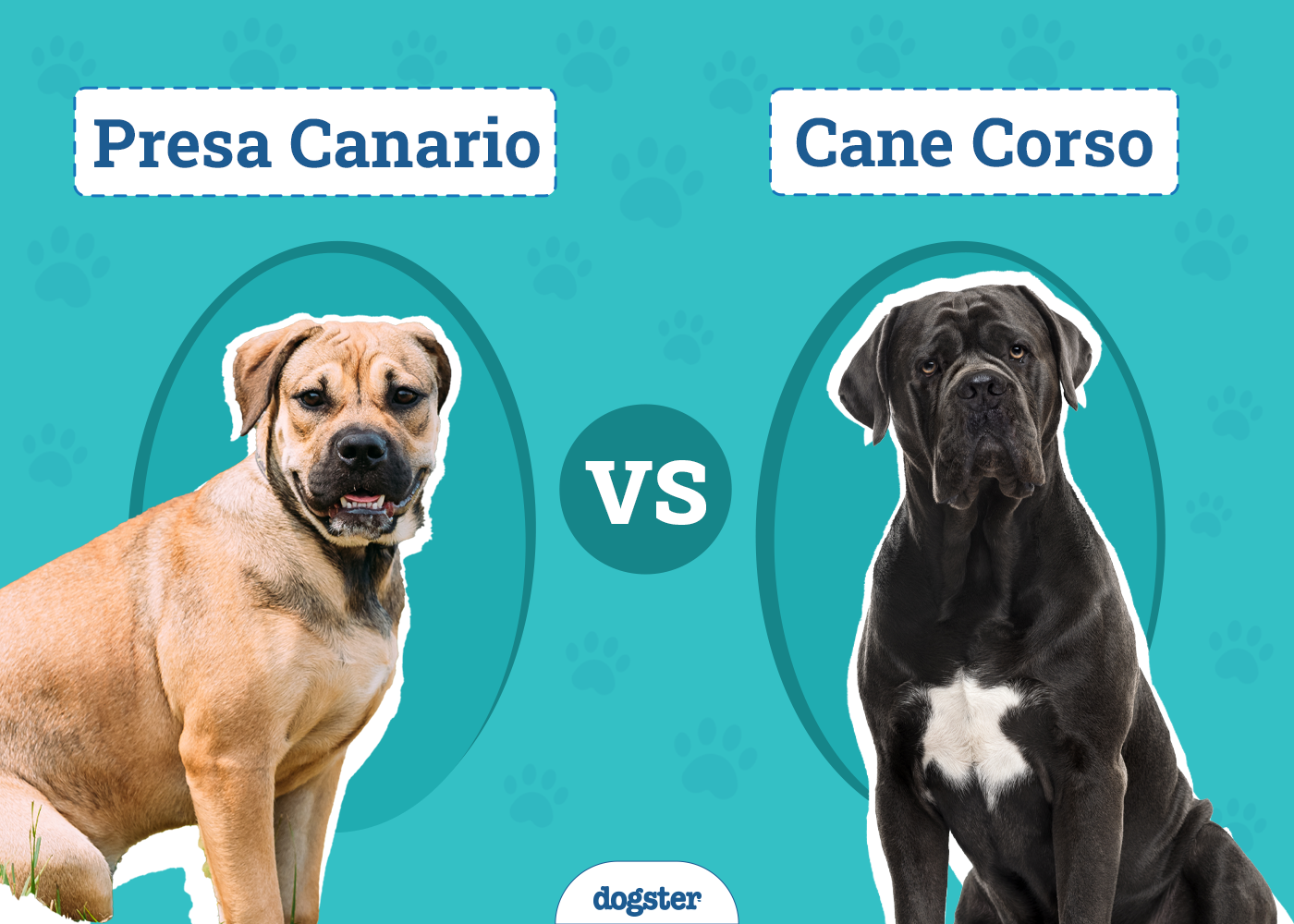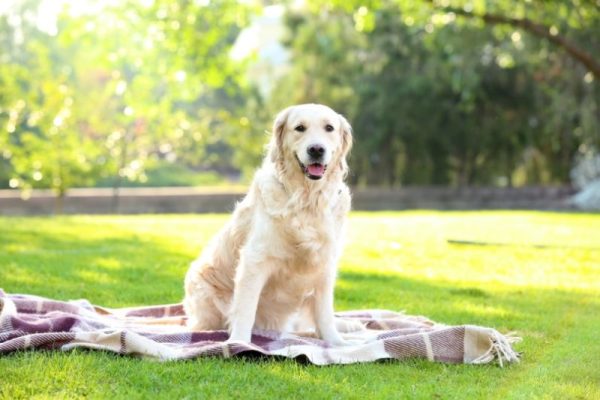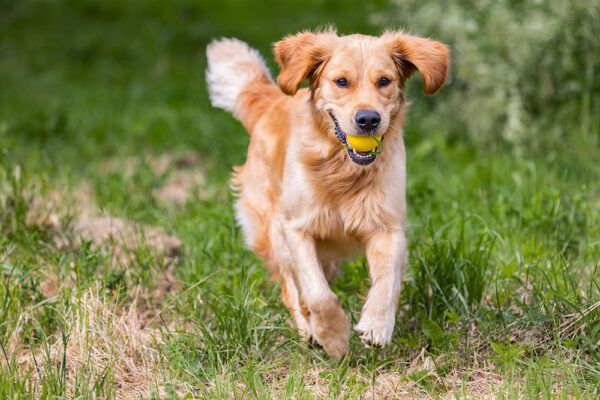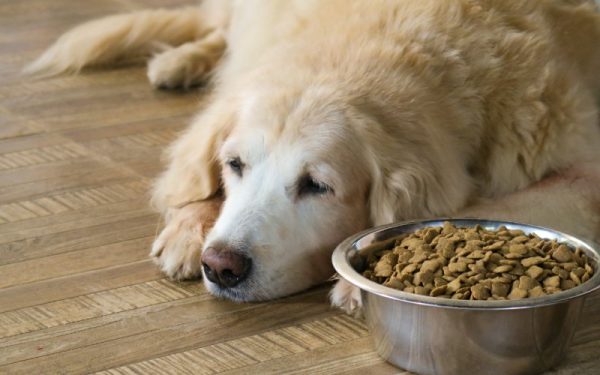In this article
View 3 More +Some people have trouble telling the difference between a Presa Canario and a Cane Corso. Both dogs have similar constitutions, bodies, and faces. They are also powerful and muscular and need experienced owners to handle them. However, differences do set them apart.
Here are more details about the difference between the Cane Corso and Presa Canario so you can decide which of these two dog breeds is a more suitable option for your household.

Visual Differences
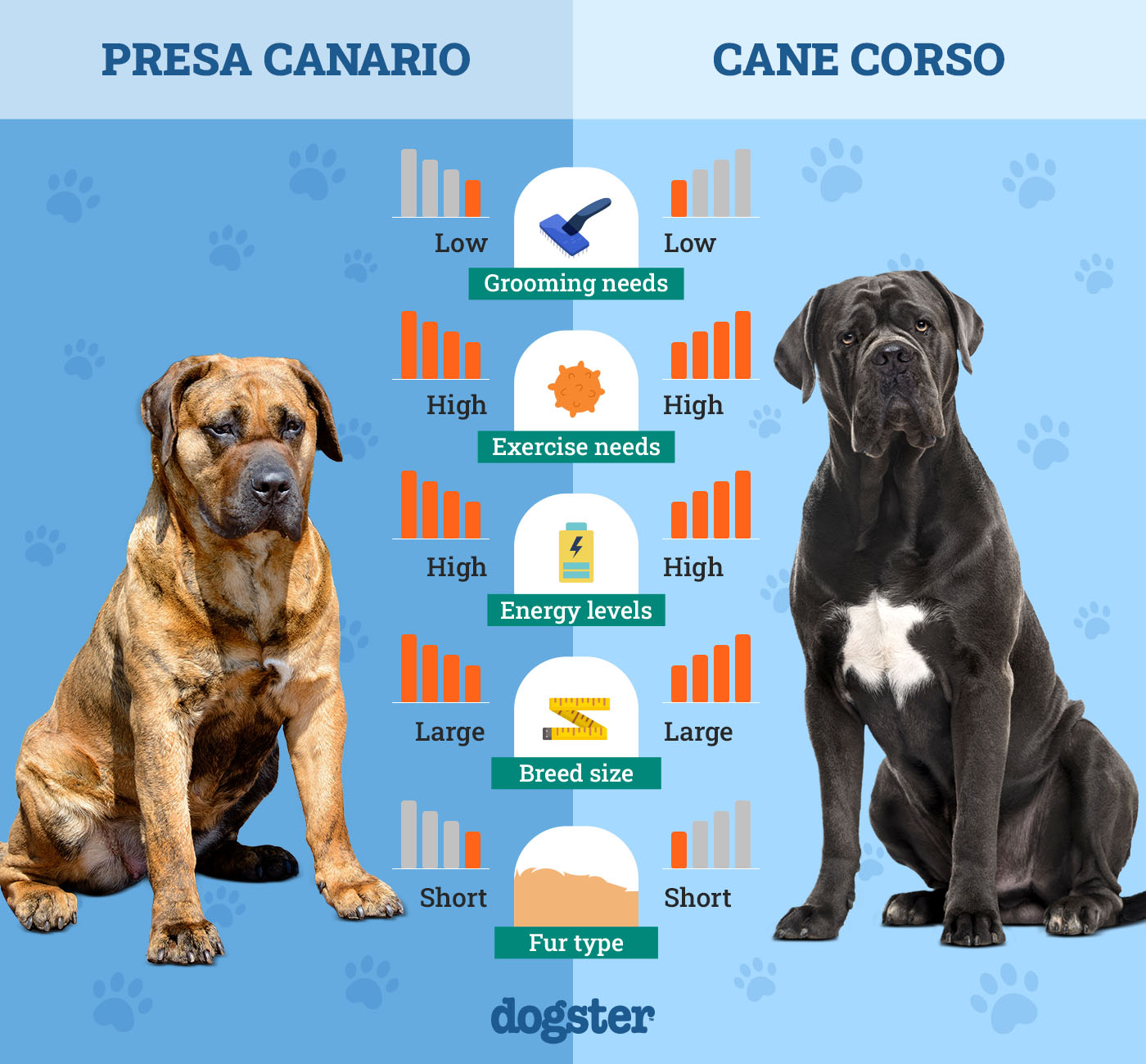
At a Glance
- Average height (adult): 22–26 inches
- Average weight (adult): 85–130 pounds
- Lifespan: 9–11 years
- Exercise: 2+ hours a day (regular long walks)
- Grooming needs: Low
- Family-friendly: Potentially
- Other pet-friendly: Potentially, if socialized from an early age
- Trainability: Intelligent, easy to train if you have experience, might need professional training if the owner is inexperienced
- Average height (adult): 23–28 inches
- Average weight (adult): 88–110 pounds
- Lifespan: 9–12 years
- Exercise: 2+ hours a day (regular long walks)
- Grooming needs: Low
- Family-friendly: Potentially
- Other pet-friendly: Could be when trained from an early age, may show aggressiveness toward pets of the same sex
- Trainability: Intelligent, easy to train if you have experience, might need professional training if the owner is inexperienced

Presa Canario Overview
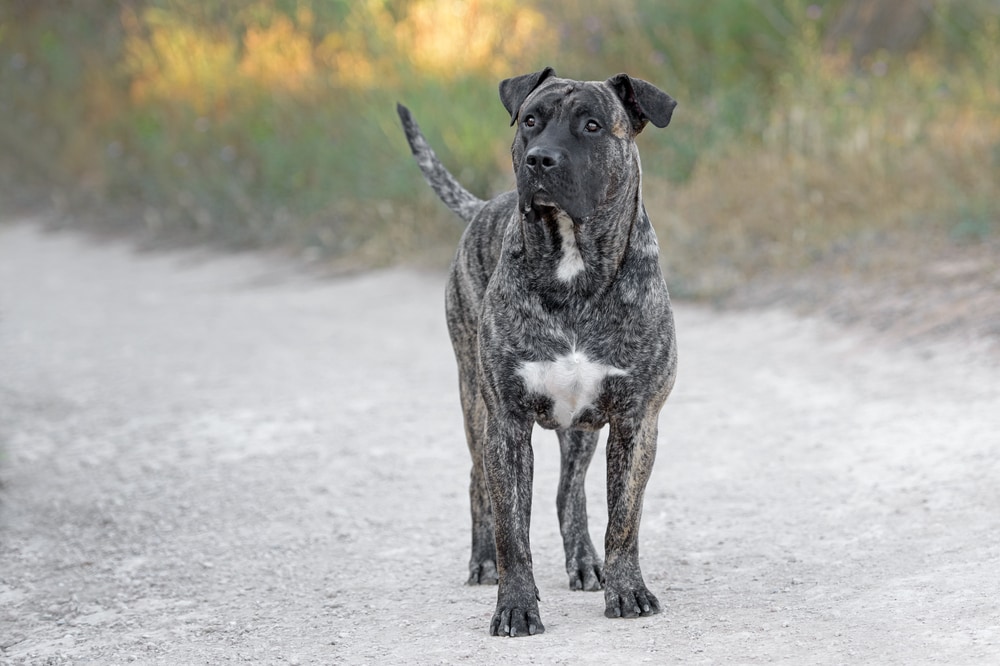
Presa Canario, also known as Perro de Presa Canario, is a large dog breed that originates from the Spanish Canary Islands. They have a calm facial expression and are suitable for being a guard dog or watching cattle.
Unfortunately, many people in the Canary Islands used these dogs for dog fights, though this tradition is almost non-existent nowadays.
Personality & Character
Presa Canario dogs are loving and playful, which may seem unusual for such a big dog. They can be great with kids and are extremely loyal and caring of their people. However, this breed may not be the best choice for families with many members and overly active children.
Due to their guardian nature, Presa Canario dogs are often too protective and cautious toward strangers; they can even become aggressive, so they require socialization from a young age. They do make excellent farm dogs for caring for livestock and cattle.
Training
When it comes to the training needs of the Presa Canario, they require training from an early age to become social and friendly instead of aggressive and dangerous.
These dogs love to push boundaries and are stubborn and strong-willed, which is why they will likely disobey you. Therefore, Presa Canarios need experienced owners who know how to handle them.
Typical positive reinforcement training will not always work for this breed, so you might need to invest in professional training for your Presa Canario. Early socialization is also essential to keep this breed as a pet, but remember that even well-behaved canines may still be unfriendly to strangers and other animals.
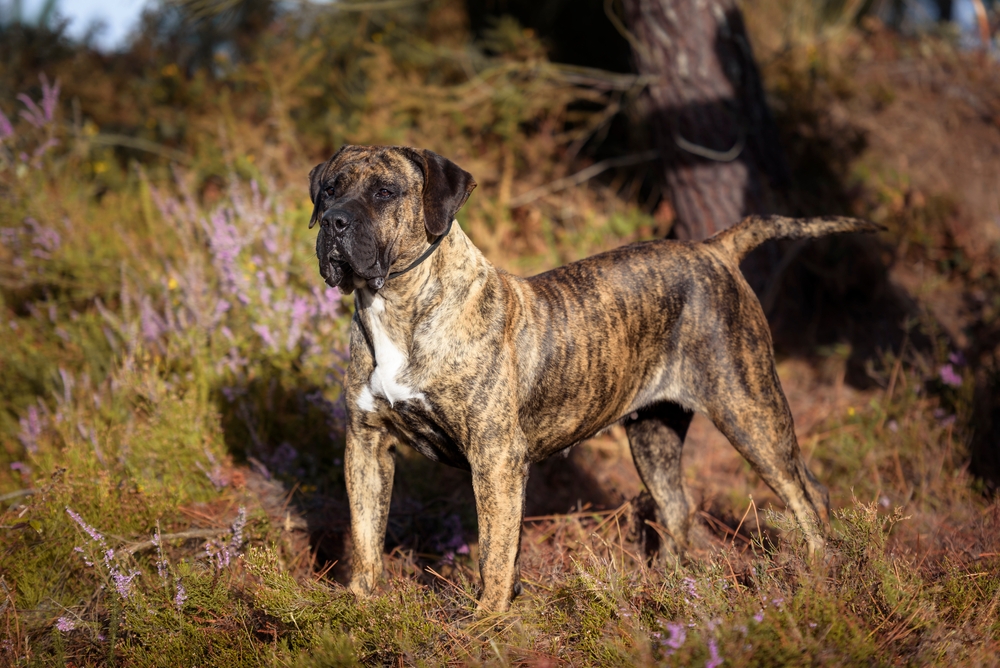
Exercise
Presa Canarios were mainly bred for guarding cattle and livestock, so they need a fair amount of exercise to remain healthy. They should get at least 2 hours of exercise per day, along with long walks to stay in good shape and prevent obesity.
These dogs value playtime outdoors and will likely bond the most with the person who usually plays with them. This breed dislikes fetch, so you must discover which activities your Presa Canario does enjoy.
Maintenance
One of the best things about owning a Presa Canario is that these dogs are extremely low maintenance, only requiring you to brush their coats once every week. This breed sheds moderately, needs their nails trimmed monthly, and requires only occasional bathing. Too much bath time can irritate a Presa Canario’s skin and cause allergies and rashes.
Health
Presa Canario dogs are typically healthy and can live long lives.
- Epilepsy
- Hip dysplasia
- Obesity
- Hypothyroidism
- Allergies
- Elbow dysplasia
- Entropion
- Cryptorchidism in males
Is This Breed Dangerous?
Presa Canario dogs are not necessarily dangerous, but can become aggressive toward strangers and animals. These dogs require training from a young age to become social, get along with others, and behave.
However, due to their protective nature, they may never accept strangers and without adequate training, can be dangerous in specific situations.
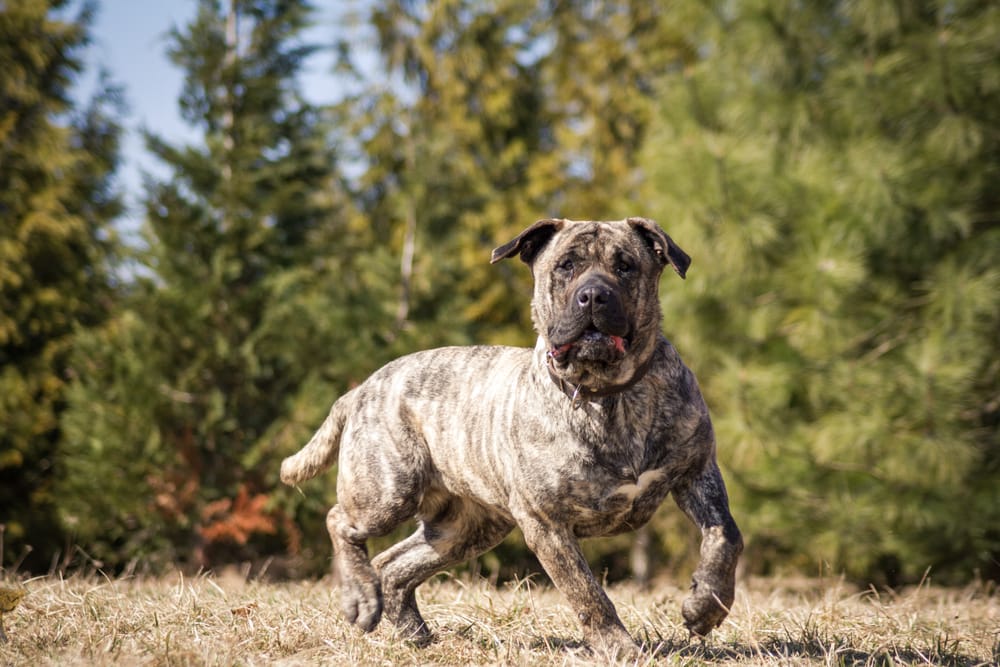
Suitable for:
Presa Canario dogs are loving and protective, so they’re great for families and anyone who loves to be active. As this breed is quite large, these dogs are most suitable for people living in houses with a large amount of land where the dog can freely run, play, and explore.
This dog requires a great deal of attention and extensive training, so ensure that you’re ready to take on this level of responsibility before getting a Presa Canario.
- Affectionate with families
- Low grooming needs
- Protective
- Hard to train
- Stubborn
- High exercise needs
- Not friendly toward strangers

Cane Corso Overview
Cane Corso, also known as the Italian Mastiff, originates from Italy. These dogs were specifically bred for protection and guarding, so many end up in police-related work.
With adequate training, these dogs can be devoted, loyal, and loving toward their family. However, since they are natural guard dogs, their instincts make them wary of strangers, and they may be aggressive to people and animals they don’t know.
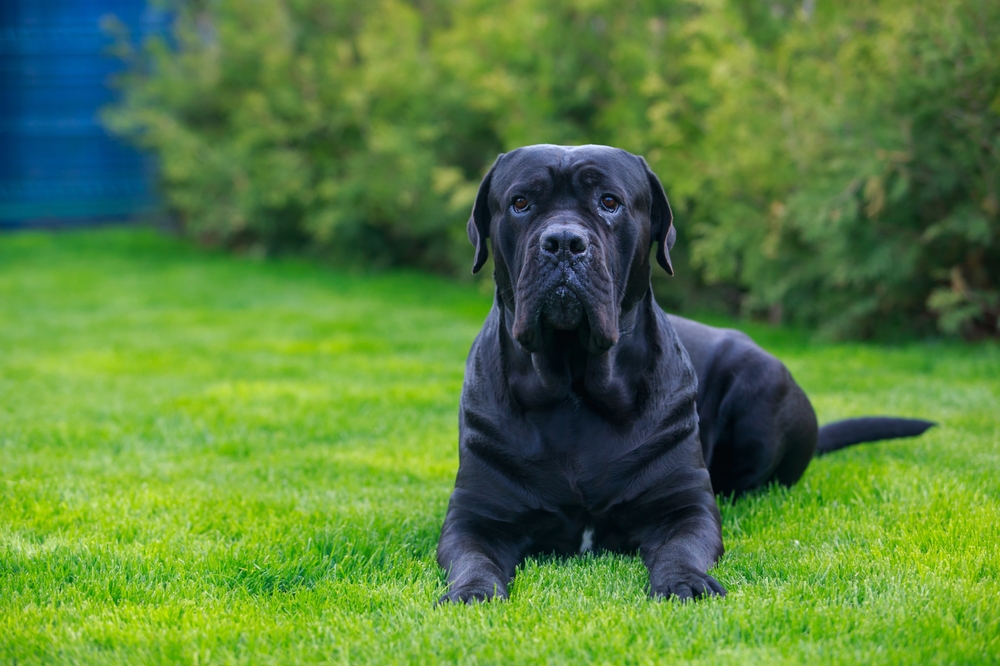
Personality & Character
Cane Corso dogs were primarily bred for guardianship and protection, which is why they’re so suitable as guard dogs. They can be stubborn and strong-willed, requiring professional training from a young age. As their owner, you need to be confident and strong; otherwise, they may start to boss you around.
Cane Corso dogs can develop strong bonds with their owners and families but may develop people-based aggression if not socialized early and properly. They can also suffer from separation anxiety when left alone for long periods, which is something to keep in mind before getting a Cane Corso as a pet.
In most cases, these dogs are gentle and loving around kids; however, it may be best to keep them with older kids and teenagers and choose a slightly gentler breed to be around babies and toddlers. Cane Corsi have a large amount of energy, so they need an active family that’s ready to provide them with a dynamic lifestyle.
Training
These dogs are intelligent but like to be in charge, so they’ll often push you to the maximum to see your reactions and what they can get away with. Therefore, their training requires extensive knowledge and patience from the owner.
Cane Corso dogs can learn various tricks and commands, but you need to help them succeed. If you’re inexperienced, it’s best to have your Cane Corso undergo professional training instead of training them by yourself. They also need early socialization, though they will typically remain cautious and occasionally aggressive toward strangers.

Exercise
When it comes to exercise, Cane Corso dogs are active and have high energy levels, so they require over 2 hours of exercise a day. Without adequate training, these dogs can become prone to obesity. They should at least have daily long walks to keep their weight in balance.
These canines often engage in play, but correcting them is important if playtime becomes too rough.
Maintenance
Cane Corso dogs have extremely short fur, which makes their maintenance needs quite low. These canines shed moderately, so weekly brushing is enough to keep their coats in good shape. You should trim your Cane Corso’s nails once a month and avoid frequent baths due to possible skin irritations.
Health
- Hip dysplasia
- Elbow dysplasia
- Obesity
- Eye problems
- Obesity
- Demodectic mange
- Wobblers syndrome
- Cruciate ligament rupture
Is This Breed Dangerous?
Most of the time, Cane Corso dogs have a loving nature; however, they can become dangerous and aggressive if not properly trained and socialized by their owner. These dogs can also display aggressive behavior if they’ve been abused in the past.
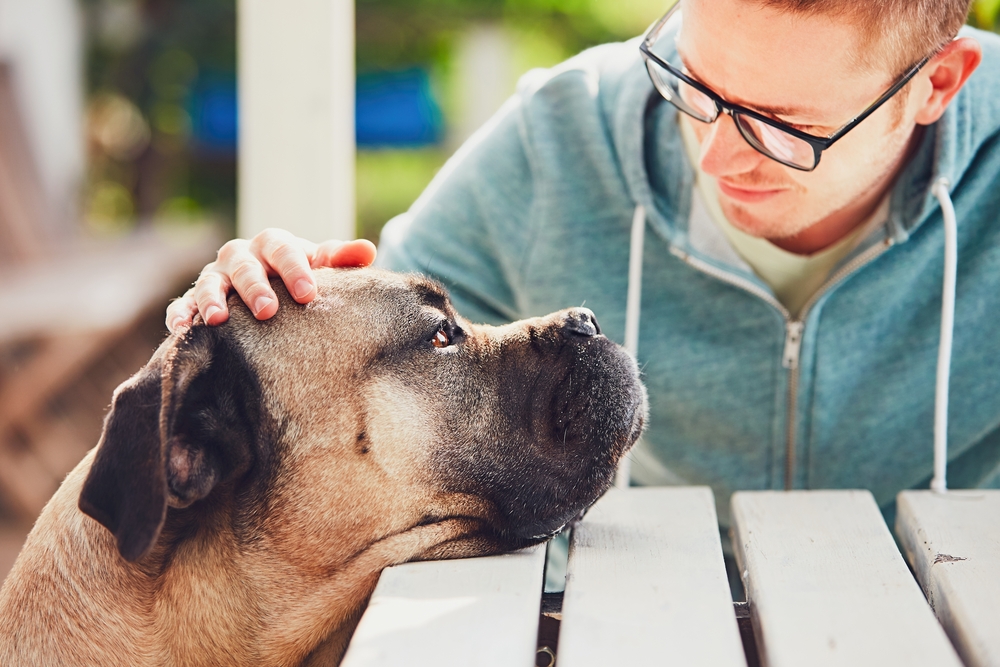
Suitable for:
These dogs are protective and loving, so they’re ideal for anyone looking for a guard dog. However, they may not be suitable for families with young children. As Cane Corsi need a great deal of attention and professional training, they may be better for couples and people with older children who can help with the dog.
They are also energetic, so they’re great for active people who love to spend time outside.
- Intelligent and affectionate
- Protective
- Low maintenance
- May suffer from separation anxiety
- Needs professional training
- Could be dangerous and aggressive if not socialized properly from a young age
- May be too active for some families

Which Breed Is Right for You?
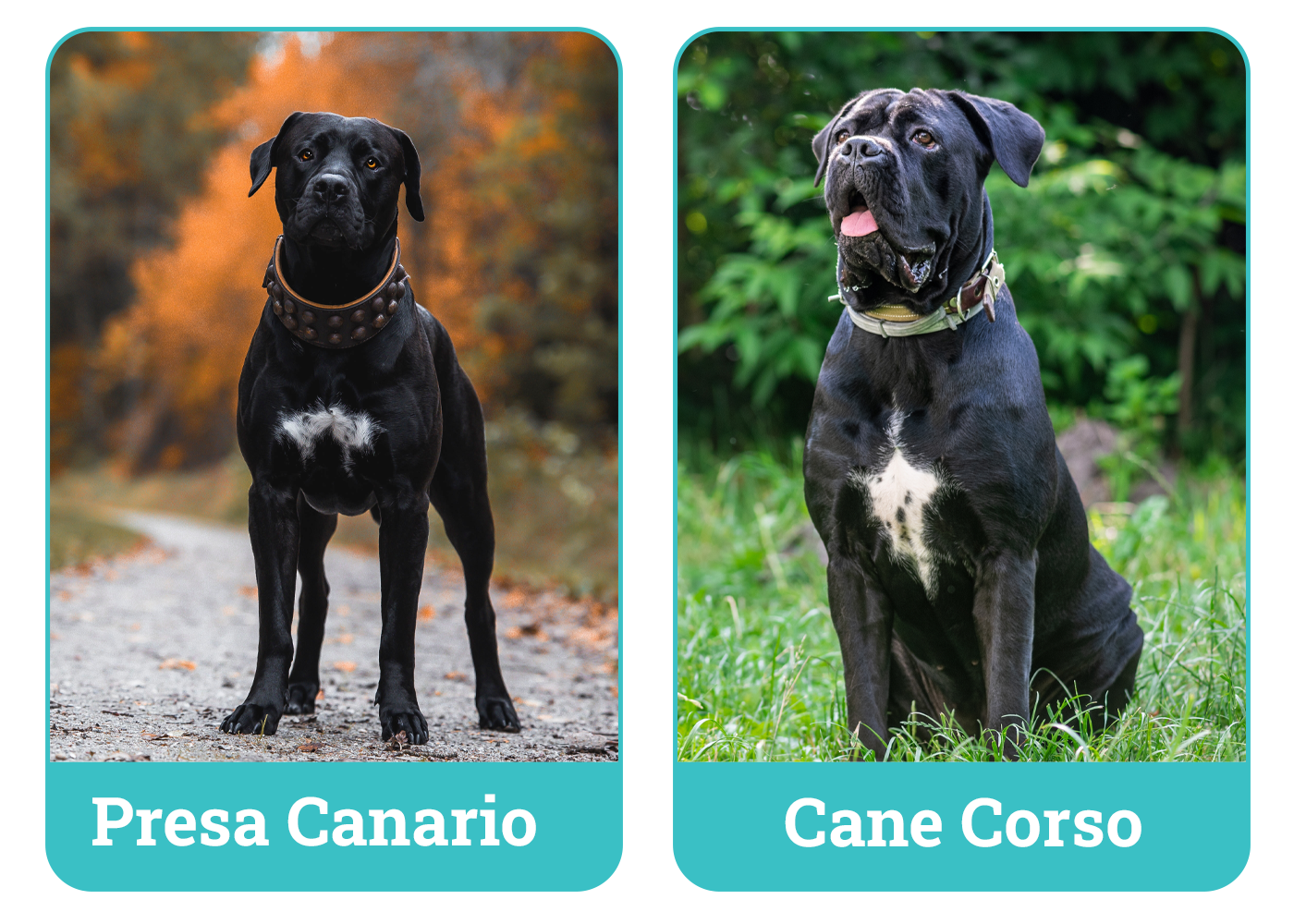
That wraps up our comparison of the Presa Canario vs Cane Corso. Although these dogs are quite similar, they do have a few differences. Regardless, both breeds love their family and protect the ones that they care about. That said, Cane Corsos are typically more protective than Presa Canario, and both breeds are difficult to train.
They require active families and places where they can freely run around and play. Both Presa Canarios and Cane Corso dogs are affectionate and loving, so you won’t go wrong no matter what breed you choose to join your family.
Related Reads:
- Cane Corso vs Kangal: The Differences (With Pictures)
- Cane Corso vs. Neapolitan Mastiff: How Are They Different? (With Pictures)
